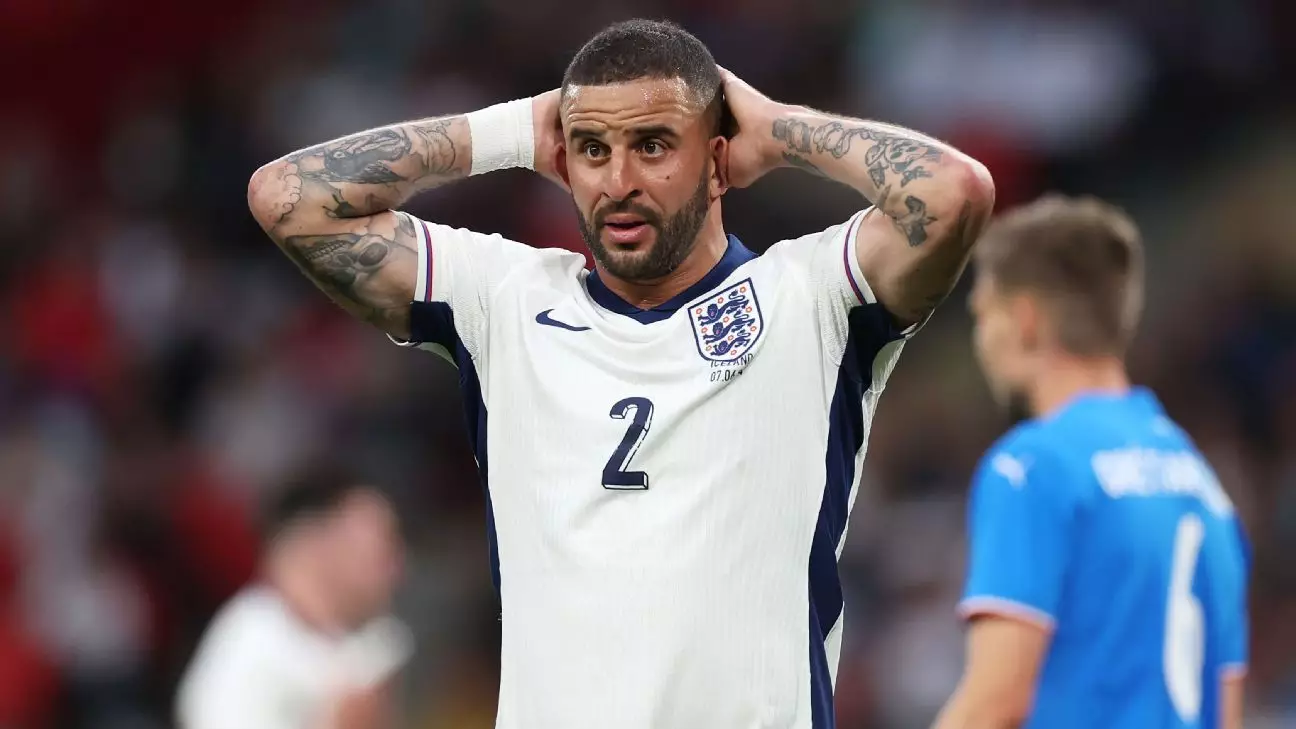In the world of football, the balance between club and country responsibilities is delicate and often fraught with complications. Pep Guardiola, the esteemed manager of Manchester City, recently voiced concerns regarding the lack of communication between club managers and their international counterparts. His comments were fueled by the injury of defender Kyle Walker, who returned from international duty with England unable to play in City’s recent match against Wolverhampton Wanderers. This incident raises important questions about player welfare and the need for better coordination between clubs and national teams.
Guardiola’s frustration stems not only from Walker’s injury but also from a broader trend he perceives in international football. Having experienced the challenges of player management both as a player and a coach, Guardiola feels that the current lack of dialogue between national team coaches and club managers is unsustainable. He reminisced about earlier times when there was direct communication, suggesting such exchanges could mitigate the risk of injury. The situation with John Stones last season, who suffered an injury during a friendly match, still lingers in Guardiola’s memory, marking a sour moment in his professional journey.
His emotional response to Stones’ injury underscores the inherent risks players face when serving their national teams, particularly in matches that don’t hold significant competitive value. Such experiences highlight the precarious nature of the modern football calendar, where friendlies and international fixtures can significantly disrupt club commitments and impact squad readiness.
Guardiola proposed that fostering a better communicative relationship between club and country could significantly enhance player welfare. By staying informed about players’ physical conditions, managers could make more informed decisions concerning team selection and rotation. Notably, he pointed out that essential players like Kevin De Bruyne are suffering from injuries that require careful management, particularly as their age increases and physical resilience diminishes. De Bruyne’s current situation exemplifies the necessity for uninterrupted communication; understanding when a player is fit or needs rest can ultimately dictate a club’s success in critical tournaments.
This dialogue, as Guardiola suggests, should not only center on injury reports but also crucially involve discussions around player management strategies that can accommodate both the players’ health and the teams’ competitive demands.
As football continues to evolve, the need for cohesive strategies between club environments and international setups becomes progressively vital. Guardiola’s articulate concerns emphasize a growing awareness of player health, advocating for a more synergistic approach among coaches. By reopening lines of communication concerning player fitness and availability, a more thoughtful structure could emerge, ensuring that players are not only fit for national duties but also primed for club success. The onus now falls on football’s governing bodies to foster partnerships that honor both the integrity of international football and the relentless demands of club competitions.
